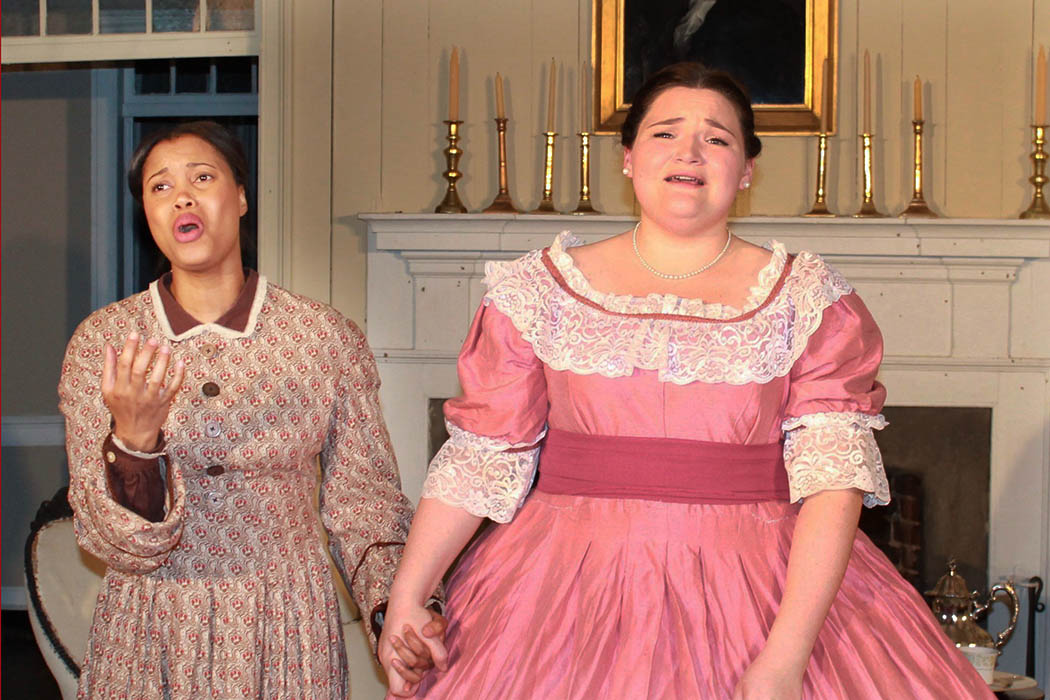Strength and courage in the face of the ugliness of war was the thread running through Marble City Opera’s latest evening of chamber opera performances—a production with the emphasis squarely on “chamber.” A period room in Knoxville’s Blount Mansion was the site for two short works, Letters from George to Evelyn by Alan Louis Smith and Beneath Suspicion by Jesse Ayers, that opened on Thursday evening. The pair of works will have three additional performances on Friday and Saturday, March 15 and 16. Both pieces were directed by MCO executive director, Kathryn Frady.

Letters from George to Evelyn is a staged song cycle for soprano and piano that featured soprano Elena Stabile. The text, drawn from letters that 1st Lt. George W. Honts wrote to his wife, Evelyn, while deployed during World War II, leads the audience from happiness and optimism toward the inevitable tragic conclusion. In the dramatically skillful hands and flowing lyricism of Ms. Stabile, we feel the arc from joy to pain brought home with masterfully presented contrasts of vocal emotion—a crisis of human existence that was deeply poignant in the close quarters of the performance space in Blount Mansion.
In Beneath Suspicion, a short mini-opera by composer and Knoxville native Jesse Ayers, we are transported to Richmond, Virginia, and into a true story of two women in the time of the American Civil War. With the scenic environment set by the Blount Mansion period room, Ayers sets the scene further with a spoken preface accompanied by violin and piano in a period texture. Via this preface we learn the background for the scene. We’re in the home of Elizabeth Van Lew, a middle-aged Richmond abolitionist who freed her family’s slaves upon her father’s death, including a young household servant named Mary. Elizabeth, known as Bet, sends Mary to Philadelphia to a Quaker School to be educated, after which Mary returns to Richmond to work in the Van Lew home as a free woman. Their domestic happiness was to be short-lived, as Mary, blessed with a photographic memory, decides that she must give up her freedom to use her innate talents to spy for the Union forces—simply because, as a slave, she would be beneath suspicion.
That moment of crisis was captured with a hand-in-hand performance of haunting vocal charm and dramatic strength by Lindsey Fuson as Bet, and Denisha Pompey as Mary. While each singer possessed their own distinctive lyrical vocal character, the ability of the two women to blend transparently as a duo, yet remain individuals via remarkable portrayals was most impressive. In the close confines of the Blount Mansion room with the singers merely feet away, the heightened emotional context was almost overwhelming in intensity.
Ayers instrumental writing, as well as his vocal score for the two women, was a judicious blend of folk simplicity tinged with just a hint of more contemporary intervals—satisfying and engaging without pulling listeners out of the period.
The music director and pianist for the performances was Brandon Coffer; the violinist in Beneath Suspicion was Margaret Moore.






